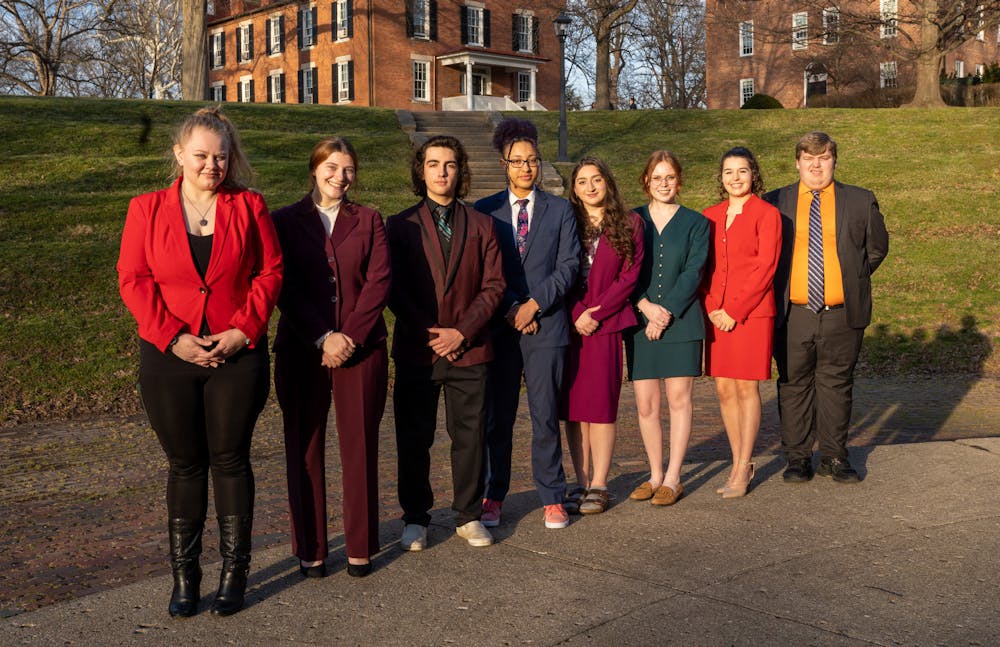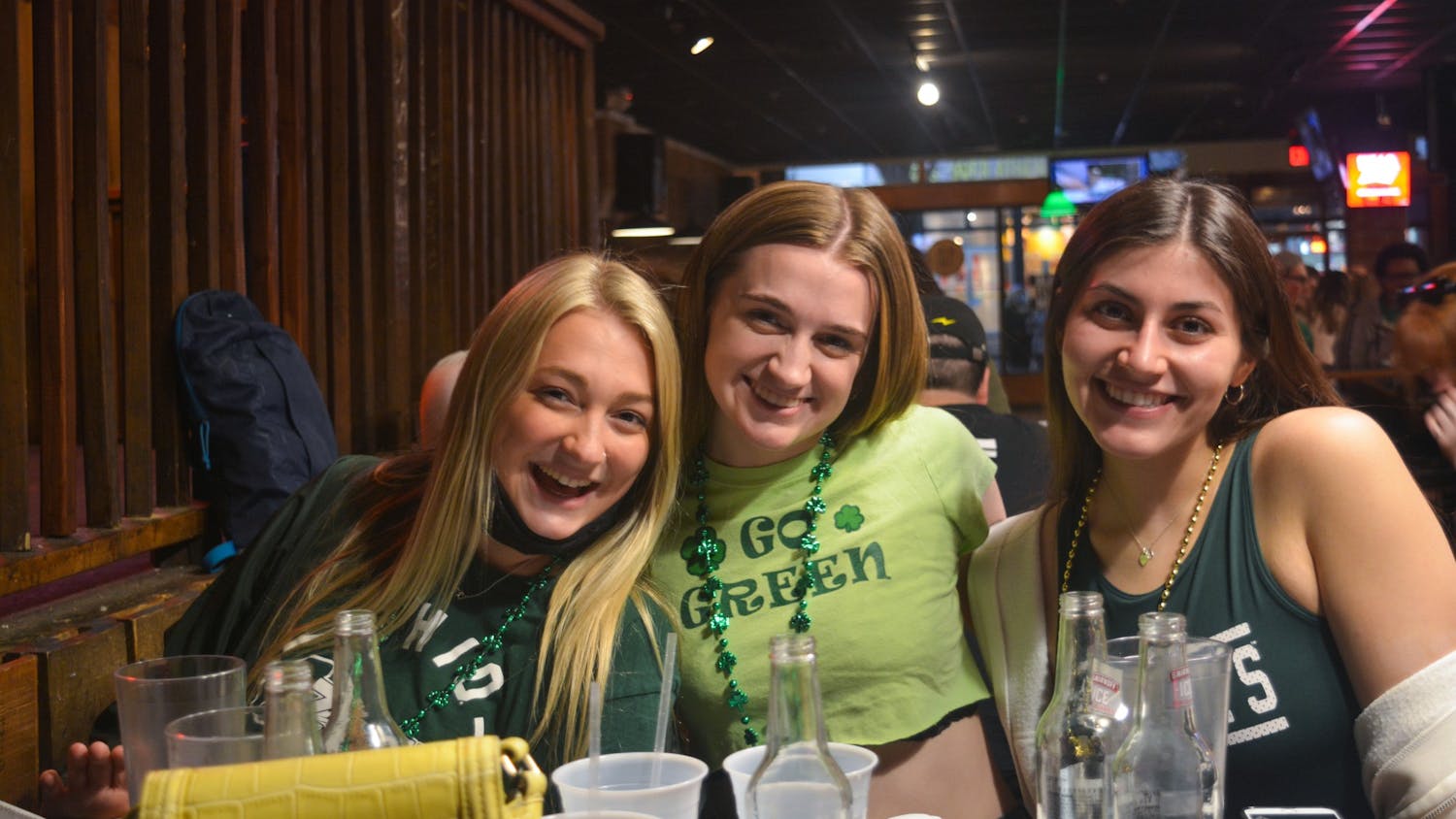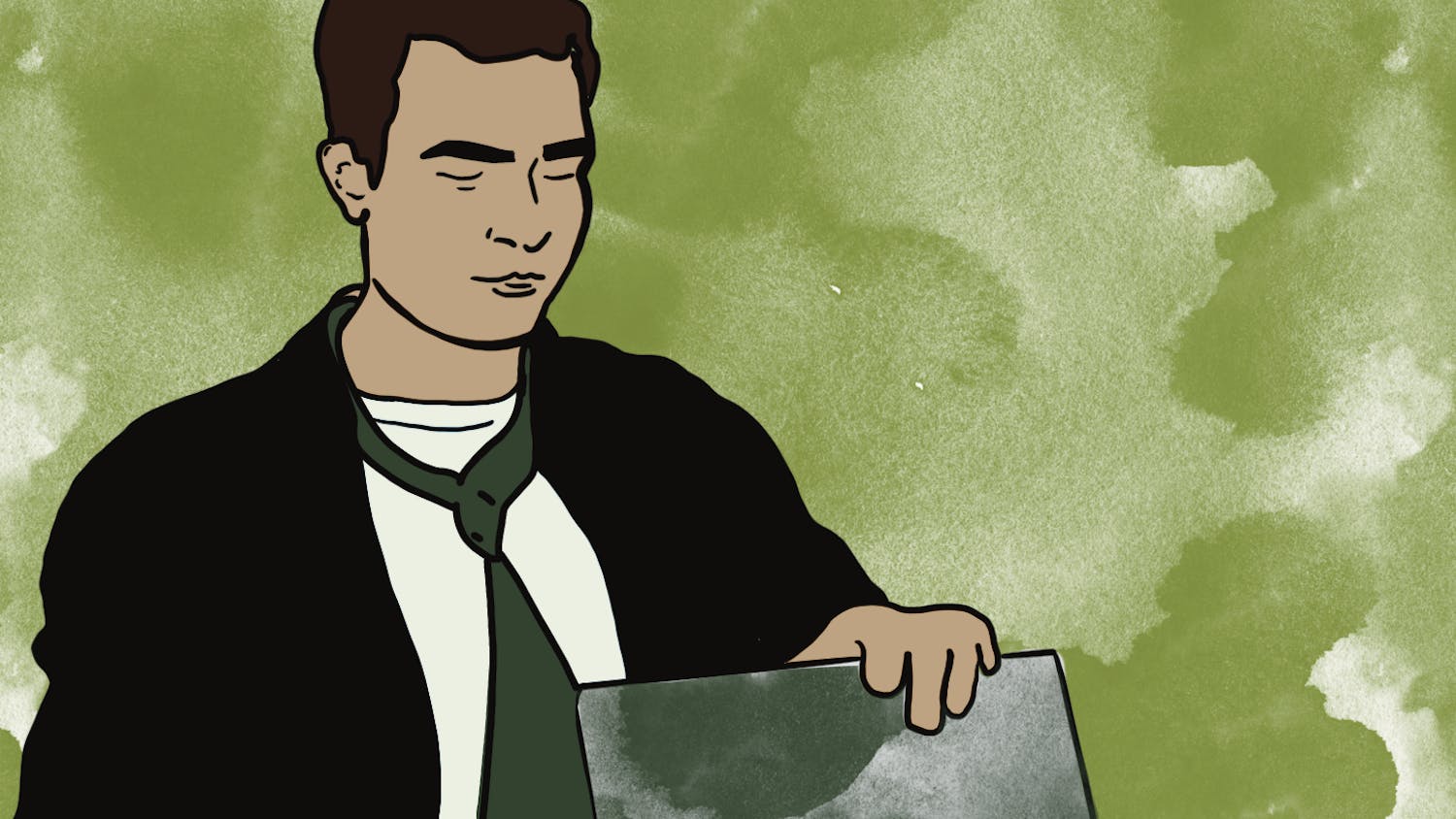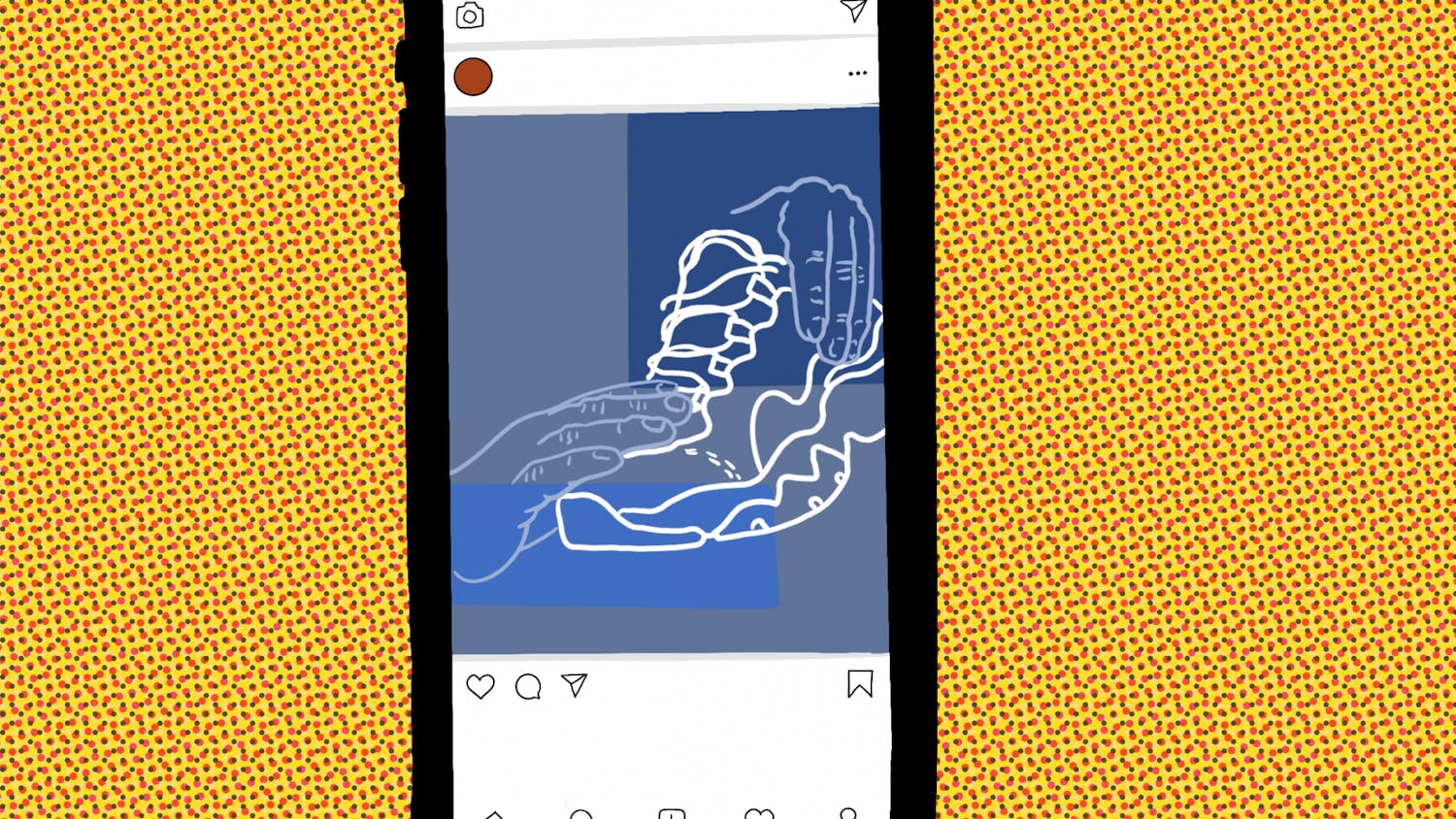Shamrock-clad students flooded Court Street for Green Beer Day on March 2, but the emerald and forest-green extravaganza wasn’t the only holiday this week. March 4 is not a day many have marked on their calendar, but it highlights a historic campus tradition. This Friday, celebrate National Debate Education Day by toasting the Ohio University Speech and Debate team.
The OU Speech and Debate team meets in Scripps Hall, and the office is hard to miss. It is decorated with the sounds of student activity, awards and even a framed thong with “Ohio 4N6” (forensics) written on it. The neon green remnant is a joke from a past Christmas party.
Speech and Debate has been a part of OU student life since the 1800s. Jennifer Talbert, director of the team and the John. A Cassese director of forensics in the college of communications, said she was told the team originally practiced in the attic of Cutler Hall, the oldest academic building on OU’s campus. The team is also rumored to have established the first library at OU. Talbert also said as the old team collected materials for speeches and debates, it accumulated an assortment of resources for other students to check out as needed.
219 years later, the team is still a hallmark of OU. The group will be traveling to the annual Pi Kappa Delta National Speech and Debate Tournament, hosted in Orlando this year, over spring break. OU’s team has a unique advantage over many others: it’s a growing program. Talbert said national speech and debate participation has gone down an estimated 33% since the beginning of the COVID-19 pandemic. At OU, however, the team jumped from 12 participants to 21 in the past year.
“I think that speaks a lot to the resiliency of the students at OU,” Talbert said. “It's hard to stay focused, and it's not the same when you don't actually get to travel in a van and go places and meet other people. It's much more difficult to meet students from other teams when you're in this virtual environment.”
Transitioning from two years of virtual competitions is a slow process. Katie Gold, a senior studying communications studies and the co-president of the team, said while the team competes frequently, it only has been able to enjoy a handful of in-person events this year. Luckily, the biggest tournaments of the season will be in-person travel opportunities for speech and debate students. These include the Pi Kappa Delta tournament and the upcoming National Forensic Association tournament from April 15 to April 17 at Illinois State University.
“We're looking to come back and, hopefully, do even better than we did last year,” Gold said about the National Forensic Association tournament, where the team placed in the top 20 for the 2021 competition. “We're hoping to get in the top 10, which would be really big. OU hasn’t been in the top 10 since probably 2009-2010.”
Competing online the past few years also complicates the events’ procedures, as they are traditionally performed with in-person judges and competitors. Talbert said the team works in four larger categories of competition. Firstly, there is classic debate, with two sides of a conflict. Then there are three categories of speech: interpretation events, which are theatrical performances of works like slam poetry or storytelling and public address events, which are traditional speeches, often persuasive or informative and limited preparation events, in which participants have only a short number of minutes to prepare a speech.
Many students participate in a variety of events. Gold said she competes in persuasive speech, informative speech, a limited preparation event called extemporaneous speaking and two interpretation events.
Anthony Banks, a freshman studying history pre-law, joined the team last August to build his resume for a future in law. While he initially only intended to participate in debate, he now does three additional speeches, including extemporaneous speaking, a dual performance with a teammate and after dinner speaking, which is a category featuring serious topics with a humorous spin. Banks said his favorite memory of the year with the team was at one of the in-person debates.
“I got my name called. I think it wasn't even that high; it might have been like fifth place or something,” Banks said. “And everybody just went nuts, clapping and shouting and chanting. It was just such a really good moment for me because this is something I've never done before, so it was really cool to get that support.”
Creating, preparing and competing in speech and debate requires a significant amount of time and mental effort. Gold said she has missed class in the past for tournaments, and she even takes the opportunity to get academic credit for speech and debate in the spring to help lighten her load.
Talbert typically works with a graduate assistant but does not have one this year. She has relied on the support of upperclassmen students such as Gold. Talbert herself coaches students in both team and one-on-one sessions for an estimated total of 30 hours a week. This workload is on top of her responsibilities as an active professor and her administrative duties as well as generally supporting her students.
“I am not just a speech coach, not just someone who teaches classes,” Talbert said. “I'm also a therapist. I'm also a PR agent … I'm constantly reaching out to the alumni. I'm also a secretary. I'm also an accountant.”
Despite the hours of work and dedication speech and debate requires, Talbert said the students make it worth it.
“I don't see them as points or to win tournaments. I don't see them as chess pieces on a board,” Talbert said. “I really see them as people. So, it is the relationships that I cultivate with students that's really important to me, and I get to see them grow and become strong, independent. I get to see them go on sort of their collegiate journey, and I get to be a part of that. I think that’s really important.”
These close bonds among the students and with Talbert are heavily reciprocated. Gold even said Talbert is her “mom away from mom.”
Gold said speech and debate has been her home for the past four years. As she moves on to graduate school, she hopes to work as a graduate assistant for another debate team.
“I was scared about finding people who had the same academic drives, who had the same passion, who had the same ability to want to do more,” Gold said reflecting on her arrival at OU. “It was really finding the speech team that helped me find people who had those same ideals and who had that same drive to do things that are a little bit going deep, up and beyond.”
Talbert said she thinks the students on the team are wonderful representatives of the younger generation.
“Most of the students on this team could speak circles around the politicians that you see on television in Washington, around the talking heads from all the different media outlets,” Talbert said. “If you want to have your faith revived in this ‘generation,’ come to a speech and debate tournament. It will change your mind because they are smart, funny, curious and academic-oriented and they're a great group.”
Banks said he is excited to continue with speech and debate in his collegiate career and encourages anyone interested to join next year.
“We're always looking for new members,” Banks said. “Especially if you think that you have an area of speech where you're strong in or you want to get better at it, this is probably the best place on campus to do so. And everybody's super supportive and will always help out. So, if you're looking to join, feel free because we're super welcoming. I didn't know what I was doing at all whenever I first joined, and now I'm going to the national tournament, so that goes to show you how good they are preparing us all.”
Editor-in-Chief






